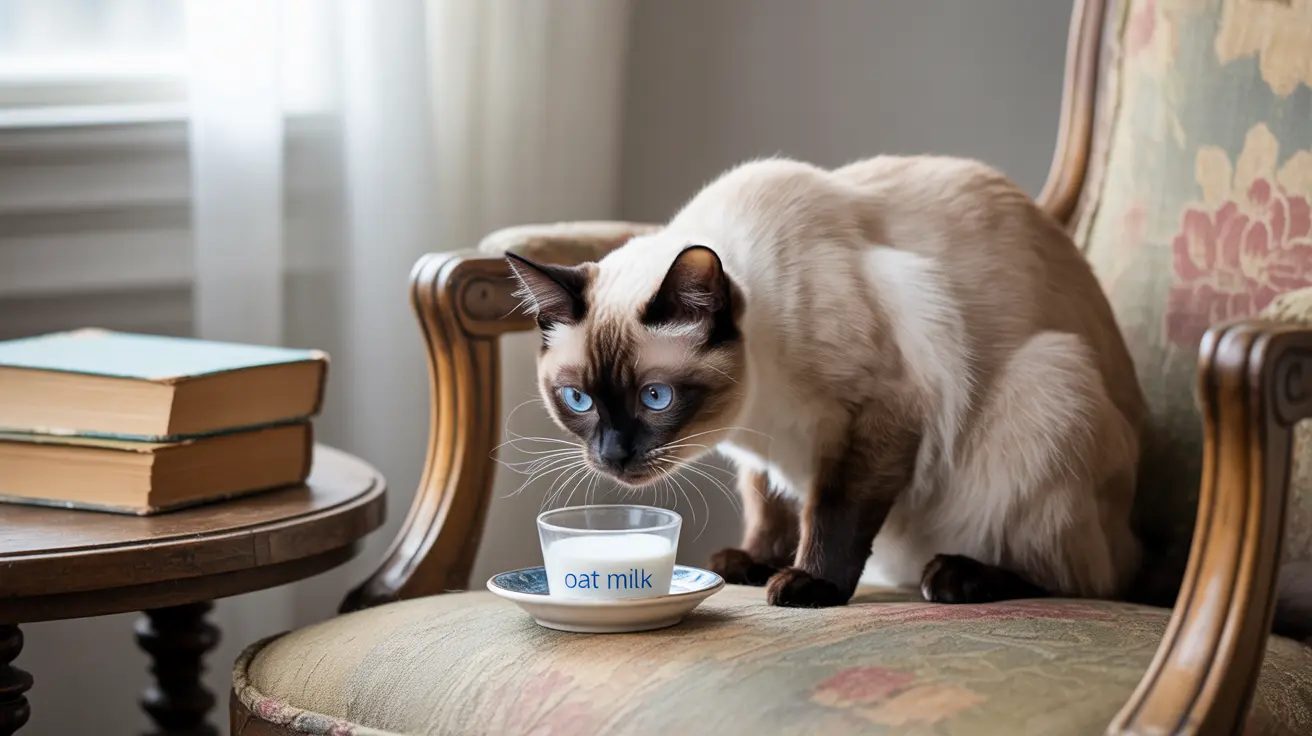As a loving cat owner, you might wonder about alternative milk options for your feline friend. Oat milk has gained popularity among humans, but is it a safe beverage for cats? Understanding the nuances of feline nutrition is crucial to maintaining your cat's health and well-being.
While cats can technically consume small amounts of oat milk, it's essential to approach this drink with caution and informed understanding. This comprehensive guide will explore the potential risks, benefits, and considerations of offering oat milk to your feline companion.
Can Cats Safely Consume Oat Milk?
Technically, cats can have oat milk in very small quantities, but it should never become a regular part of their diet. Unlike cow's milk, oat milk doesn't contain lactose, which makes it marginally safer for cats who are typically lactose intolerant after weaning. However, this doesn't mean oat milk is a nutritionally beneficial or recommended drink for cats.
Why Oat Milk Isn't Ideal for Cats
Cats are obligate carnivores with highly specialized dietary needs. Oat milk is primarily composed of carbohydrates and lacks the essential nutrients that cats require from animal-based protein sources. The nutritional profile of oat milk simply doesn't align with a cat's biological requirements.
Potential Risks of Giving Oat Milk to Cats
Digestive Sensitivity
Some cats may experience digestive issues when consuming oat milk. Symptoms could include:
- Mild stomach upset
- Diarrhea
- Vomiting
- Decreased appetite
Allergic Reactions
Cats with grain allergies should avoid oat milk entirely. Even cats without known allergies might experience adverse reactions due to the unfamiliar ingredients in store-bought oat milk.
Safe Consumption Guidelines
Quantity and Frequency
If you choose to offer oat milk, strict moderation is key. Veterinarians recommend no more than 1-2 tablespoons occasionally. This tiny amount minimizes potential digestive disruptions while satisfying any curiosity about the beverage.
Homemade vs. Store-Bought
Store-bought oat milk often contains additives like sugar, salt, and preservatives that can be harmful to cats. If you're considering offering oat milk, homemade versions with minimal ingredients are marginally safer.
Alternatives to Oat Milk
Instead of experimenting with alternative milk products, focus on providing your cat with:
- Fresh, clean water
- Balanced, veterinarian-recommended cat food
- Occasional cat-specific treats
Frequently Asked Questions
Is oat milk safe for cats to drink?
Oat milk is generally safe in tiny amounts but offers no nutritional benefits. It should never replace water or proper cat nutrition.
How often can I give my cat oat milk without causing health issues?
Limit oat milk to 1-2 tablespoons very occasionally, and always monitor your cat for any adverse reactions.
What are the benefits and drawbacks of giving oat milk to cats compared to other milk types?
Compared to cow's milk, oat milk is lactose-free and slightly less problematic. However, it provides no meaningful nutritional value and can potentially cause digestive issues.
Can cats with grain allergies or sensitive stomachs safely consume oat milk?
No, cats with grain allergies should completely avoid oat milk. Even cats with sensitive stomachs might experience negative reactions.
Should oat milk be used as a regular substitute for water in a cat's diet?
Absolutely not. Water is the only liquid cats truly need. Oat milk should never replace water or be considered a regular part of their diet.
Always consult with your veterinarian before introducing any new food or drink to your cat's diet. Each cat is unique, and professional guidance ensures your feline friend's optimal health.






